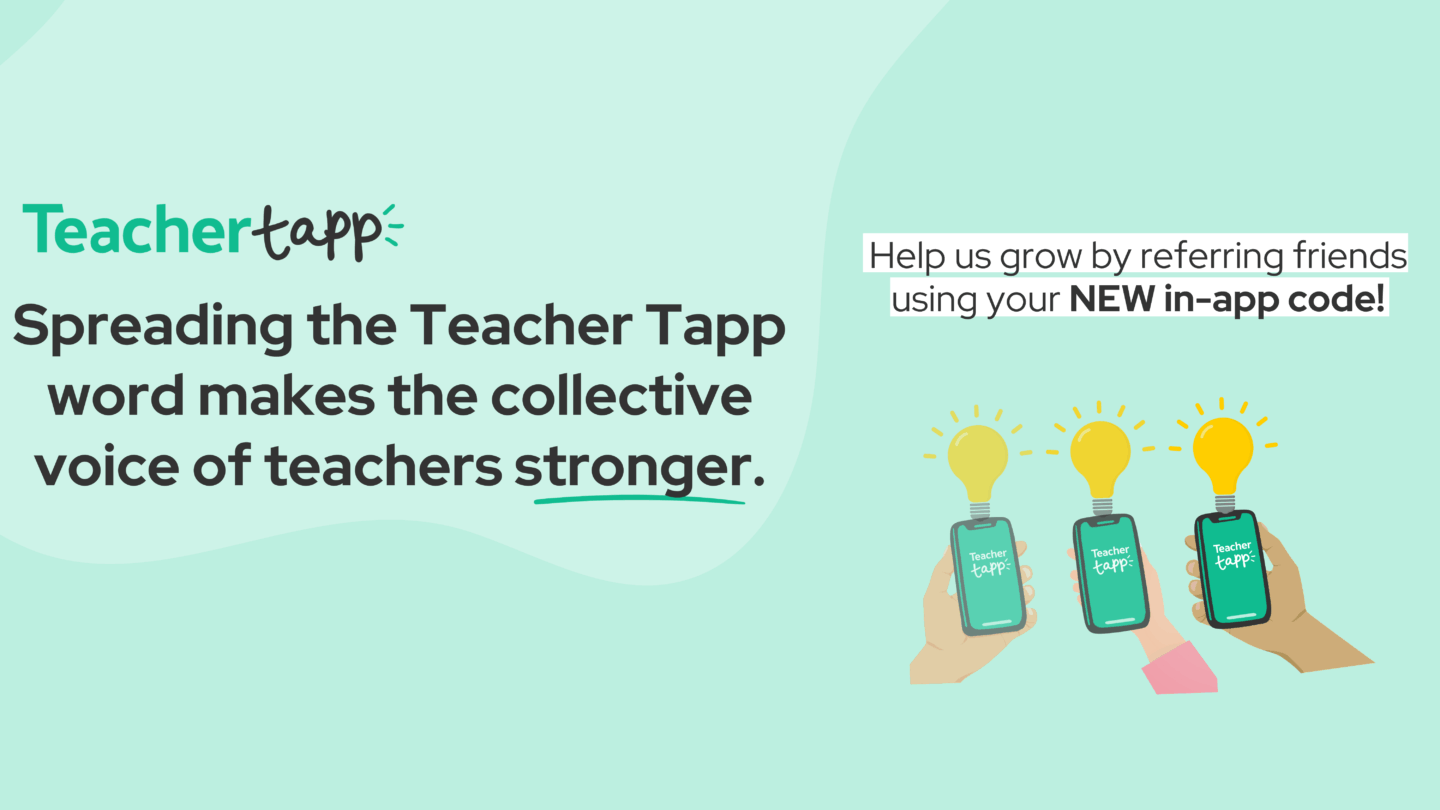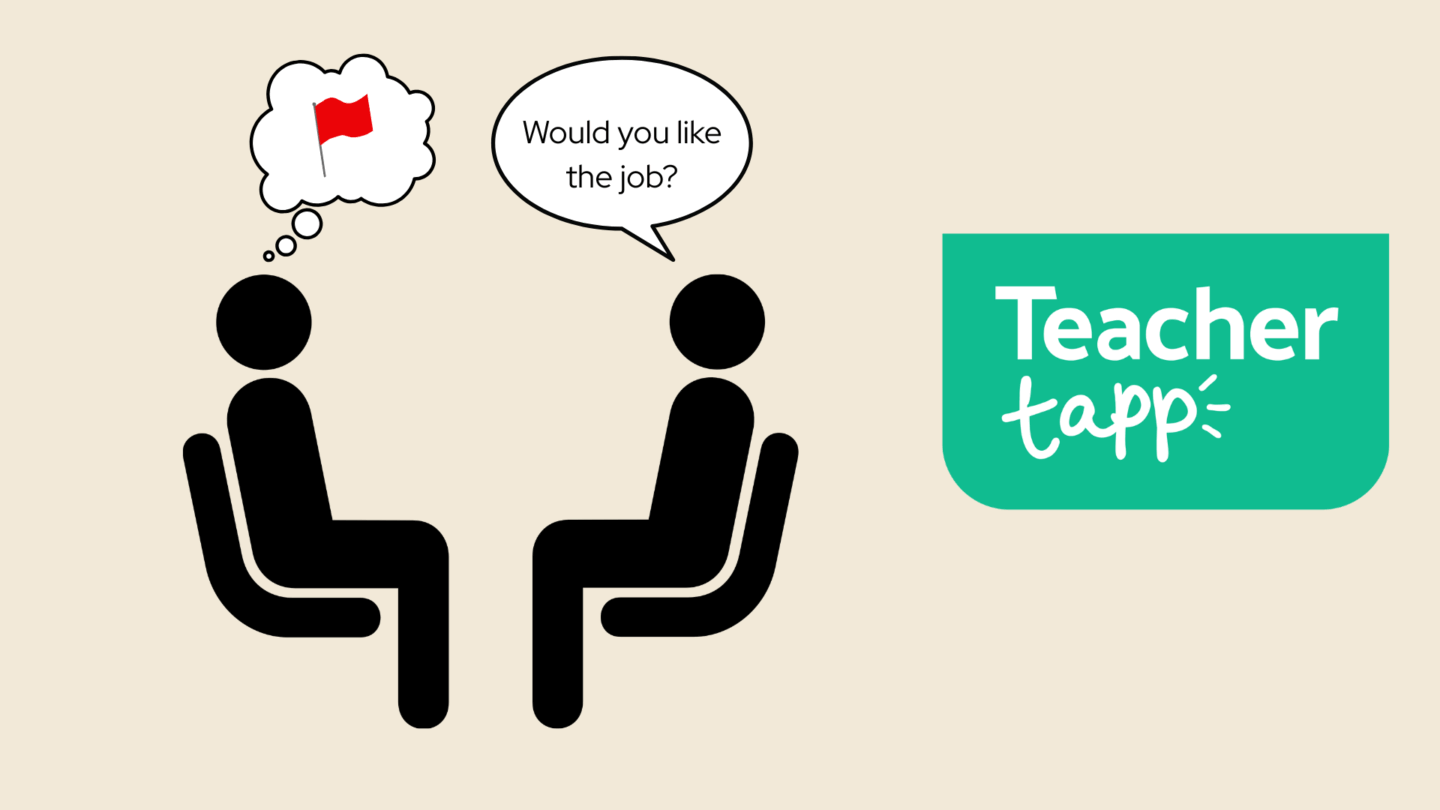Attention Tappers! If you’re looking for the latest findings from November 2019, please click here to be redirected!
If you’re here to learn more about Behaviour, Multiplication checks and avoiding Observations, read on below.
First of all, a big thank you to all the Teacher Tappers who have been sharing badges and promo packs. We are now up to 5,600 daily users! Keep an eye out on the app for another chance to request a promo pack of posters and coasters so you can share Teacher Tapp with your colleagues.
1. Did you have a bad last lesson today?
We have to start this week’s findings by talking about *that* lesson – yes, last lesson on Thursday, when a lot was going on in your classrooms!
On that day we asked you to list any behaviours you’d seen during your last lesson. Would you have guessed that primary teachers would report the greater levels of disruption to a calm flow of teaching and learning?! Usually, it’s secondary teachers who spend their time fretting about behaviour and policies. Perhaps they worry so much because it is scarier to have a defiant, and substantially sized, 15-year-old in your room than it is a defiant 6-year-old? It doesn’t seem to be as simple as there being more behaviour issues!
How did teacher experience affect the classroom experience? We added up how many of these behaviour incidences each teacher had, and then looked at the patterns by years of service (below).
Conclusion: Secondary teachers with over 20 years experience, and who are still in the classroom on a Thursday afternoon, run a very tight ship!
Note also that when you take into account the wealth of the intake, there are big differences in behaviour patterns across secondary schools. With those in independent schools having the best behaviour (albeit far from perfect) through to those in areas with the highest levels of free school meals pupils seeing the worst.
In primary schools the pattern is much less distinct. Could this explain why parts of the country, such as Newcastle, can have some of the best primary schools but also some of the worst secondary school scores?
We plan to ask you a lot more about how behaviour and behaviour policies work in your school in the coming weeks. Watch this space!
2. Honestly, the multiplication checks aren’t universally hated…
Multiplication checks were in the news again last week, with the NAHT claiming the results would not tell teachers anything they didn’t already know and so wouldn’t do anything to improve students’ knowledge of times tables. (We guess they ignored the bit where teachers might actually prepare students for the test?).
It was therefore time to check how teachers felt and… you still tend to be more positive than negative about it, which is the the same as when we asked previously.
However, there is a huge difference between headteachers. Secondary headteachers are strongly in favour of the check, whereas primary heads are strongly against. This makes sense. Primary heads will be held accountable for the result, and so may feel it unfair and distracting. Secondary heads, however, much prefer if children turn up with secure knowledge of times tables, and likely see the checks of a way to ensure this.
Ultimately, how teachers feel about the test depends on how it affects them. We can see this by comparing what teachers think depending on their year group or subject. In primary schools, the lower Key Stage 2 teachers aren’t massively keen on the check (and neither are the Year R teachers), as they will have to prep students for the test. But Year 5/6 teachers are more likely to support the check than oppose it – after all, it’s much less stressful to get a class through their SATs if they already know their tables!
Over in secondary schools, maths teachers are huge supporters of the check – 72% support it versus 16% who oppose it. All other subjects support it too, though not quite so enthusiastically.
3. Teachers don’t typically vote Tory, but do they secretly like their policies?
Now that one-time education secretary, Michael Gove, and his sidekick, Dominic Cummings, are back at the centre of government, many of us have been reflecting on the tumultuous period of education reform since the early 2010s. It isn’t quite a decade ago yet, but we wondered if teachers felt the hassle – all the upheavals on curriculum, and assessment, and everything else – has been worth it.
Almost no teachers thinks the impact on learning of recent education policy reforms has been ‘very positive’ (and pretty much everyone who did select that options advertised their position in this twitter thread!)
The results are nevertheless more balanced than one would expect given that less than 10% of teachers previously told us they would vote Conservative. The number of teachers feeling the impact was negative (37%) is only marginally more than those who feel it has been positive (at 31%).
Of course, many of our newest teachers were in school themselves when the reforms started! Many aren’t really sure what the impact is, which is understandable. The most experienced teachers were also the most negative about the impact of the reforms. (Though heads are more positive than the classroom teachers.)
4. Should we have single-sex schools?
We still have a lot of single-sex schools in our secondary system – many of which are church or selective schools. Increasingly, they are grappling with complex issues around gender identity and admissions. And in many areas they can cause serious gender imbalanced because boys schools are going co-ed at a much faster rate than girls schools. (This is how co-founder Laura ended up teaching in a school that was 80% boys!)
So, what should the government do? Opinions were very mixed. 11% felt the status quo ought to remain without any changes; 31% would like a policy to ensure single-sex schools do not cause gender imbalances at mixed-sex schools; 18% are fine with the schools we have, but don’t think we should allow new single-sex schools to open; and 31% would want the state sector to move towards being entirely mixed over time.
The results below are split by the type of school you teach at. Not surprisingly, those of you who teach at single-sex schools do tend to be more supportive of them! But many of you are still concerned about the impact on mixed schools.

5. The Teacher Tapp guide to avoiding being observed!
OK, being observed when teaching is actually great, even if nerve-wracking! It is one of the best ways to help you reflect on your practice and get help to improve your classroom instruction. Observations don’t happen much (the modal response was just 4-6 times a year). But we get that some of you find it really stressful! If you do then – just for fun – this is our guide to avoiding being observed!
- Go and teach in the independent sector. It is far more unusual to be observed teaching over there. Most of you were observed less than once a term!
2. Stick around! If you’re new and finding observations stressful. Take comfort in knowing that they soon pass. It is very rare for teachers with five or more years of experience to be observed more than once a term.
3. Get out of an RI/inadequate school! Those of you in Ofsted rated RI or inadequate schools are MUCH more likely to be frequently observed. Why? You’ll be having outsiders visit to see how things are going, and your own management will need to be seen to be managing you.





